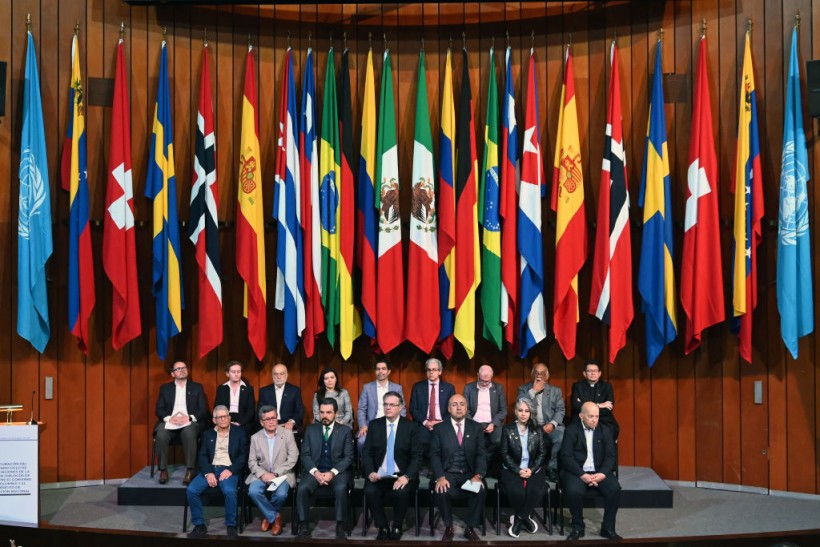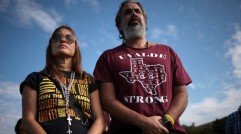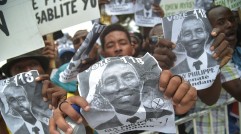Colombia, ELN Rebels Agree to Extend Ceasefire for a Week

In a joint announcement on Monday, the Colombia government and the National Liberation Army (ELN) revealed their decision to extend the current ceasefire by one week, according to JURIST News.
The Colombia-ELN rebels ceasefire, known as CFBNT (bilateral, national, and temporary ceasefire), was set to expire on January 29, 2024, and will now continue until February 5, 2024.
Both parties committed to adhere to the conditions outlined in Agreement No. 10 of June 9, 2023, and the existing protocols.
The government and the ELN rebels expressed their intention to assess the national and temporary ceasefire (CFBNT) comprehensively.
Following the evaluation, they plan to sign an extension aimed at fortifying, evolving, and incorporating additional aspects.
Noteworthy among these aspects are the cessation of economic extortive kidnappings by the ELN, the revitalization of societal participation processes, and the establishment of a national network for participation.
READ NEXT: Colombia: ELN Rebels to Stop Attacking During Ceasefire Preparations
Maintaining Current Ceasefire Conditions: Focus on Humanitarian Goals
The joint statement reiterated the commitment of both parties to uphold the current ceasefire conditions initiated in August, which aimed at preventing direct attacks between the government forces and the ELN.
One of the central objectives of the Colombia-ELN rebels ceasefire is to enhance the humanitarian situation in communities affected by the ongoing conflict, ABC News reports.
However, it is crucial to note that the existing ceasefire does not specifically address certain issues, such as the rebel forces' practice of kidnapping civilians for ransom or recruiting minors - activities that have continued despite the temporary truce.
The rebels have expressed grievances about alleged military operations in areas under their control during the ceasefire.
Monday's joint statement emphasized the ongoing discussions between the government and the ELN to "strengthen" the existing ceasefire.
The Colombian government has been urging the rebels to cease kidnappings, while the ELN has sought alternative financing methods for their operations.
The rebels insist on linking the cessation of kidnappings to a new ceasefire agreement.
The Colombia-ELN rebels ceasefire faced a critical moment in October when rebels kidnapped the parents of Luis Diaz, a prominent Colombian soccer player.
Although Diaz's mother was swiftly rescued by the police, his father remained in captivity for 12 days, sparking protests and mediation efforts.
Understanding Colombia's Deep-rooted Conflict
The armed conflict in Colombia traces back to 1964 with the formation of guerrilla groups, including the Revolutionary Armed Forces of Colombia (FARC) and the ELN.
Rooted in historical income inequality and poverty, especially among the rural population, the conflict emerged as a response to political tensions.
The ELN rebels, founded in 1964, operates based on principles of social justice and political equality.
It expanded its influence in 2017, taking control of territories previously held by FARC.
The FARC, historically the largest guerrilla army in Colombia, entered into a peace agreement with the government, leading to the ELN's territorial gains.
The conflict has resulted in the displacement of thousands of people, raising humanitarian concerns.
A United Nations report from June revealed that Colombia recorded 214,000 internally displaced people in 2022, highlighting the significant impact of the ongoing violence and instability on communities.
As the Colombia government and the ELN strive to find common ground for lasting peace, the nation remains at a critical juncture in its pursuit of stability and resolution of longstanding issues.
READ MORE: Haiti: Kenya Court Stops Deploying Police, Says it's 'Illegal and Invalid'
This article is owned by Latin Post.
Written by: Bert Hoover
WATCH: Colombia and ELN rebel group sign ceasefire agreement - From Al Jazeera English
Subscribe to Latin Post!
Sign up for our free newsletter for the Latest coverage!














